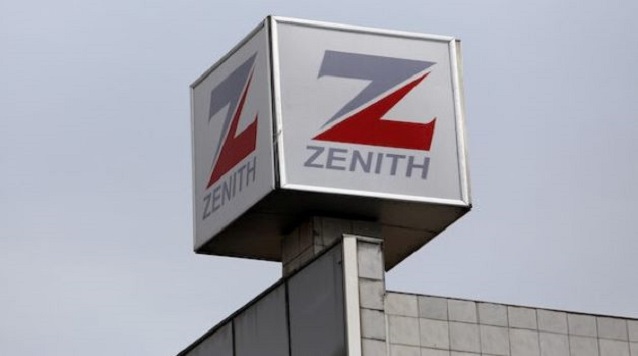E-Financial
CBN Made Critical Mistakes that Doomed its Currency Redesign

By Stephen Onyeiwu
Nigeria has successfully introduced new banknotes on about 10 occasions since independence in 1960. So why has the latest attempt been so controversial and traumatic? And what measures need to be taken to avoid a future debacle?

Godwin Emefiele
Nigeria’s central bank announced the introduction of new banknotes last November, with the changeover to new notes scheduled for mid-December.
The rollout of the policy disintegrated into chaos, amid mounting anger among ordinary Nigerians.
The rollout of the currency change was disastrous. The fallout included:
- Severe shortages of the new banknotes.
- Precipitous declines in business transactions (especially in the informal sector).
- Long queues at bank premises and overcrowded banking halls
- Attacks on bank staff and destruction of bank property, including ATMs that failed to dispense cash.
The policy also led to lawsuits by some state governors against the Central Bank of Nigeria and the Federal Government.
I have identified five factors that marred the redesign policy, most of which could have been avoided by the Central Bank of Nigeria.
Litany of errors
Cost-benefit: An egregious error committed by the central bank was its violation of the principle of cost-benefit analysis. This is a simple rule in economics that implores policy makers to undertake an initiative only when the benefits exceed the costs. One should ask: What were the benefits of introducing the policy? What were the potential costs at the time of implementation?
The central bank justified the redesign policy as follows: to rein in counterfeiting, promote a cashless economy by limiting the amount of the new banknotes that can be withdrawn, reduce the large quantity of dirty notes circulating in the economy, discourage hoarding, curb crimes like kidnapping and terrorism, and head off illicit financial transactions.
It also saw the policy as a way of addressing the huge amount of currency outside the formal financial sector; 85% of banknotes circulate outside the banking system, largely because of hoarding and illicit financial transactions.
And the cost? If indeed the central bank considered the cost, it obviously underestimated it. How would anyone ignore the large-scale disruptions in the economy and loss of productivity that the policy caused, not to speak of the stress and anxiety inflicted on Nigerians?
Communication: Of all the pitfalls that doomed the currency redesign policy, at least as conceived originally, the lack of effective communication about the overarching goals and modus operandi of the exercise was the most devastating.
Nigeria’s central bank threw a basic element of strategic planning and communication to the winds when it failed woefully to communicate and educate the public about expectations, prior to launching the policy. According to strategic planners, a major policy initiative that is not well communicated, from the top of the strategy planning pyramid to the bottom, is bound to fail.
The central bank should have sought the buy-in of major stakeholders, especially the National Economic Council and the National Assembly. The central bank would have had a better chance of avoiding the ferocious push-back it got.
The central bank finally began rolling out a communication plan by late December 2022. But this was too little too late. By then Nigerians had already characterised the policy as decidedly punitive. The narrative that had gained ground was that the change was designed to curtail the ability of politicians to buy votes during the 2023 elections.
This inevitably raised the question of why millions of Nigerians should suffer because of politicians?
The central bank’s mishandling of communication was also manifested in the fact that it failed to issue policy guidelines to commercial banks and the public days after the Supreme Court nullified the bank’s earlier deadline. This has exacerbated the confusion associated with the policy, as merchants and businesses continue to reject the old notes, despite the court’s rulings.
Inappropriate timeframe: The timeframe for implementation was unrealistic and impracticable. By setting a very short timeframe for phasing out the old notes, the Central Bank of Nigeria appeared to have adopted textbook assumptions about how the Nigerian banking system works.
Anyone who has been to a typical commercial bank in Nigeria would know it would have been impossible for the banks to undertake the monumental task of collecting old notes and dispensing the new ones within the one-and-a-half month window originally allowed by the central bank. Overcrowding, chaos, excruciatingly slow service and unnecessary bureaucratic red tape are quite common during normal banking hours. It is not uncommon to observe people with “connection” circumvent queues and obtain preferential access to bank staff. Although Nigerian banks pride themselves as being digitised, a lot of paper-pushing still goes on within the banking system.
The central bank should have considered this fact and allowed for a longer timeframe for implementation.
There was also no persuasive rationale for the rushed implementation of the policy. Neither was the central bank able to explain why the old and new notes could not coexist, a measure the Supreme Court has now mandated the bank to implement.
Conflicting goals and lack of prioritisation: Policy targeting is a major precondition for success. The focus on one unambiguous objective in past redesign policies enabled the central bank to conduct a seamless and less dramatic exercise.
The current redesign policy had too many goals, and it was unclear which one was the target goal.
Identifying target goals enables policy makers to select appropriate instruments for achieving those goals. But when there are too many goals, the danger is that an instrument designed for one goal may undermine another goal.
For instance, the goal of reining in money laundering and illicit financial transactions meant that the Central Bank of Nigeria needed to deliberately restrict access to the new banknotes. But this inflicted unintended hardships on innocent Nigerians who simply wanted to access their hard-earned money.
The central bank should have focused on one major goal. If the goal was to phase out old notes, as the bank is statutorily mandated to do, then the old and new notes could have circulated alongside each other until the old notes were phased out.
A casual announcement that new notes would be circulating from a given date would have been all that was needed. People would not have panicked and rushed to the banks to withdraw money.
Economic headwinds: It is very difficult to implement a major policy initiative that negatively affects people during a period of macroeconomic instability. The central bank policy came at a bad time. Nigeria’s economy is in a shambles, with a 22% inflation rate, 33% unemployment rate – 43% among young Nigerians – and a growth rate of 3%.
These economic challenges have been compounded by a 17.5% interest rate, steep declines in the value of the Naira, and widespread poverty.
Nigerians’ tolerance for economic shocks was already at its limit when the redesign policy was launched. The policy and the confusion that accompanied it tipped them over the edge.
The challenge of credibility
The central bank needs to reestablish its credibility as the “people’s bank,” to reverse a self-inflicted image of an organisation that’s partisan.
The bank has a fiduciary responsibility of catering to the interests of its main “shareholder,” the Nigerian people. But the perception is that the bank lacks independence. To effectively discharge its statutory duties, the Central Bank of Nigeria should initiate a process of re-asserting its independence and regaining the people’s trust and confidence.
Stephen Onyeiwu is professor of Economics & Business, Allegheny College
This article is republished from The Conversation Read the original article.
E-Financial
Zenith Bank Gets Regulatory Approval for Full Takeover of Paramount Bank

Zenith Bank, Nigeria’s second biggest lender by market value, has received approval from the Competition Authority of Kenya (CAK) to acquire 100 percent of Paramount Bank Limited, clearing a key regulatory hurdle in its East African expansion drive.

In a statement on Thursday, CAK said the transaction is “unlikely to lead to a substantial prevention or lessening of competition in the market for the provision of banking services in Kenya” and would strengthen Paramount’s financial position, helping it meet enhanced core capital requirements over the long term.
The Kenyan regulator noted that the deal poses no risk of reduced competition in the country’s banking sector. Zenith currently has no banking operations in Kenya, while Paramount is a Tier III lender with a modest 0.2 percent market share.
“The approval is based on the Authority’s determination that the transaction is unlikely to harm competition, while any negative public interest concerns regarding employment can be addressed through mitigating remedies,” CAK added.
Paramount met the Central Bank of Kenya’s KSh3.0 billion core capital requirement in November last year, reporting KSh3.118 billion after raising KSh332 million from shareholders, according to Mwango Capital, a Nairobi-based research firm.
The deal reflects a broader shift among banks in East Africa’s largest economy as lenders seek growth opportunities beyond increasingly saturated home markets marked by weak credit expansion, rising regulatory costs, and intense competition.
While several global banks — including Standard Chartered and HSBC — have scaled back African operations over the past decade, Zenith’s move signals confidence in selective regional expansion, particularly in East Africa, where economic growth and financial inclusion trends remain supportive.
The banking group is also widening its continental footprint. Last month, the lender disclosed plans to expand into Ethiopia, Africa’s second most populous country, as it targets generating up to half of its profits outside Nigeria over the medium term.
Historically, Nigeria, the continent most populous nation contributed as much as 90 percent of the bank’s earnings, a dominance that is now gradually easing.
Data cited by The Africa Report show that profit contributions from foreign subsidiaries rose to 27 percent in the first nine months of 2025, up from 14 percent in 2024.
Nigeria’s banking recapitalisation drive is also pushing large lenders such as Zenith to deploy capital beyond their home market. In January 2025, Zenith — which holds an international banking licence — raised N350.4 billion ($242 million), lifting its paid-up capital to N614.6 billion ($425 million).
With higher capital buffers in place, banks are reassessing how best to deploy fresh funds as domestic earnings normalise following two years of windfall gains.
As part of the approval, Zenith has been required to retain Paramount’s 78 employees for at least 12 months after the transaction is completed.
The bank is listed on the Nigerian and London stock exchanges and operates across corporate, commercial, retail, and investment banking. Its international subsidiaries span the United Kingdom, Ghana, Sierra Leone, Gambia, the UAE, and China.
E-Financial
Court Jails Ogiemwonyi, Stockbroker for Theft of $80,000, N953m Shares Proceeds

Victor Ogiemwonyi, a Lagos stockbroker, and Partnership Securities Limited, his company, have been convicted for allegedly stealing shares worth N953 million and $80,000 belonging to one Mr. Arnold Onyekwere Ekpe, a former managing director of Ecobank Transnational Incorporated (ETI).

Ogiemwonyi was convicted after he was found guilty of two-count charges bordering on stealing, contrary to Section 285(1), (9) (b) and (c) of the Criminal Law of Lagos State, 2011 slammed on him by the Economic and Financial Crimes Commission (EFCC).
Ekpe, through Messrs Margaret Onyema, his counsel, has sometimes in October 2016 in a petition to the EFCC alleged that he instructed the defendants to sell his 96,077,872 units of Ecobank Transnational Incorporated (ETI) shares, which were sold at the rate of N1,296,885,311.02.
But he said out of the proceeds of the sale, the stock broker paid only N300,000,000.00 to him while he dishonestly diverted the balance for personal use.
Following investigations, the defendants were charged with two counts of stealing.
Count one reads:
”Victor Ogiemwonyi and Partnership Securities Limited between the months of June, 2016 and September, 2016 at Lagos within the jurisdiction of this honourable court dishonestly stole the sum of N953, 535,861.57 (Nine Hundred and Fifty Three Million, Five Hundred and Thirty Five Thousand, Eight Hundred and Sixty one Naira Fifty Seven Kobo) being part of the proceeds of sale of 96, 077, 872 Ecobank Transnational Incorporated Shares, property of Mr. Arnold Onyekwere Ekpe”.
Count Two reads:
“Victor Qgiemwonyi and Partnership Securities Limited sometime between June, 2016 and July, 2016 at Lagos within the jurisdiction of this honourable court dishonestly stole the sum of USD$80,000.00 (Eighty Thousand United States of America Dollars) which formed part of the accrued dividends on 96, 077,872 Ecobank Transnational incorporated Shares, property of Mr. Anold Onyekwere Ekpe”.
At trial, the prosecution, led by Ola Sesan, called five witnesses and tendered 67 exhibits, all of which were admitted and marked by the court.
The defence, on its part, called three witnesses, including the first defendant.
Delivering judgment on Wednesday, Justice Modupe Nicole-Clay of the Lagos State High Court sitting in Ikeja, Lagos convicted Ogiemwonyi and his company, Partnership Securities Limited, guilty on all counts.
The court sentenced the first convict to pay a fine of N10 million, while the second convict was ordered to pay a fine of N20 million.
Also, the court directed the convicts to pay back the entire money stolen from the petitioner, both in naira and dollars.
Recall that Securities and Exchange Commission, SEC, had in 2017 banned Victor Ogiemwonyi, from operating in the capital market for life over alleged unprofessional conduct in the Nigerian capital market.
He was also banned for life from holding directorship position in any public company in Nigeria.
He was also ordered to pay a penalty of N100,000.
SEC said Ogiemwonyi was banned after he was found guilty of breaching Rule 1(iii) of the Code of Conduct for Capital Market Operators and Their Employees as contained in its Rules and Regulations made pursuant to the Investments and Securities Act 2007.
The ban also followed petition by EFCC to SEC accusing Ogiewonyi of misappropriation of about N1.24 billion, $80,000.00, stealing and dishonest conversion of proceeds of share sale belonging to an investor.
It was alleged that he used his company to dupe over 300 investors over N4.8 billion with Arnold Ekpe a former Managing Director of Ecobank Transnational Incorporated, ETI, being one of his victims.
E-Financial
FCCPC Delists Non-Compliant Digital Lenders Post-January 5 Deadline

Federal Competition and Consumer Protection Commission (FCCPC) has commenced enforcement actions against Digital Money Lending (DML) operators that failed to regularise their operations under the Digital, Electronic, Online and Non-Traditional Consumer Lending Regulations, 2025 (DEON Regulations).

FCCPC
The commission withdrew the conditionally approved status of non-compliant DML firms and removed them from its official register of approved digital lenders, effective immediately after the January 5 compliance deadline.
FCCPC Executive Vice Chairman and Chief Executive Officer, Mr Tunji Bello, announced the measures on Wednesday, emphasising their role in upholding regulatory standards and ensuring certainty in Nigeria’s digital lending sector.
Mr Bello stated that the compliance window provided under the DEON Regulations, which took effect on July 21, 2025, had closed, paving the way for fair, orderly and due process-driven enforcement.
He noted that the actions target persistent issues such as exploitative loan recovery tactics, data privacy breaches, harassment of borrowers and anti-competitive practices that have plagued the sector.
The DEON Regulations, issued on September 3, 2025, under the Federal Competition and Consumer Protection Act 2018, mandate all non-bank digital lenders to register, adhere to fair interest rates, ethical debt recovery and robust data protection measures.
Non-compliance now attracts severe penalties, including fines up to N100 million or one per cent of annual turnover, operational restrictions, app store delistings and potential director disqualifications for up to five years.
As of late 2025, the FCCPC had granted full approval to 438 digital lending companies, with recent data indicating over 521 firms now under regulatory scrutiny post-deadline.
The commission’s phased crackdown involves collaboration with the Central Bank of Nigeria, Google and Apple for account freezes and global app removals targeting unregistered platforms.
Industry watchers described the enforcement as a landmark move to sanitise Nigeria’s fast-expanding digital credit market, which has seen rising borrower complaints despite earlier 2022 interim guidelines.
The FCCPC reiterated its commitment to balancing innovation with consumer protection, urging affected operators to swiftly meet requirements for reinstatement.

 E-Financial2 days ago
E-Financial2 days agoZenith Bank Gets Regulatory Approval for Full Takeover of Paramount Bank

 Telecom2 days ago
Telecom2 days agoMTN Nigeria Suffers 9,218 Fibre Cuts in 2025 as Vandalism, Theft Cripple Network

 Telecom2 days ago
Telecom2 days agoNew Investment Fund Targets Acceleration of Emerging Technology in Nigeria

 E-Business2 days ago
E-Business2 days agoFirm Detected a Fivefold Surge in QR Code Phishing Attacks in the Second Half of 2025

 News2 days ago
News2 days agoNITDA Commits to Digital Inclusion for Persons with Disabilities

 Telecom2 days ago
Telecom2 days agoNCC Licences Six New ISPs to Challenge Telcos, Satellite Giants

 E-Financial2 days ago
E-Financial2 days agoFCCPC Delists Non-Compliant Digital Lenders Post-January 5 Deadline

 E-Business2 days ago
E-Business2 days agoJustMarkets Unveils Top 5 Trading Assets for 2026 Profits
























